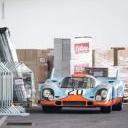Scelte strategiche BMW Group
-
Contenuti simili
-
- 11 risposte
- 1252 visite
-
- 91 risposte
- 16671 visite
-
I prossimi modelli Suzuki 1 2 3 4 5
Pubblicato da __P,
- scelte strategiche suzuki
- scelte strategiche
- (e 2 altri in più)
- 41 risposte
- 8141 visite
-
-
-





.thumb.jpg.902d2a4f20a129e92b6f6920407b81bd.jpg)








.thumb.jpg.46228d717c405acd43b45b79fddce6a4.jpg)







Messaggi Raccomandati:
Crea un account o accedi per lasciare un commento
Devi essere iscritto per commentare e visualizzare le sezioni protette!
Crea un account
Iscriviti nella nostra community. È facile!
Registra un nuovo accountAccedi
Sei già registrato? Accedi qui.
Accedi Ora